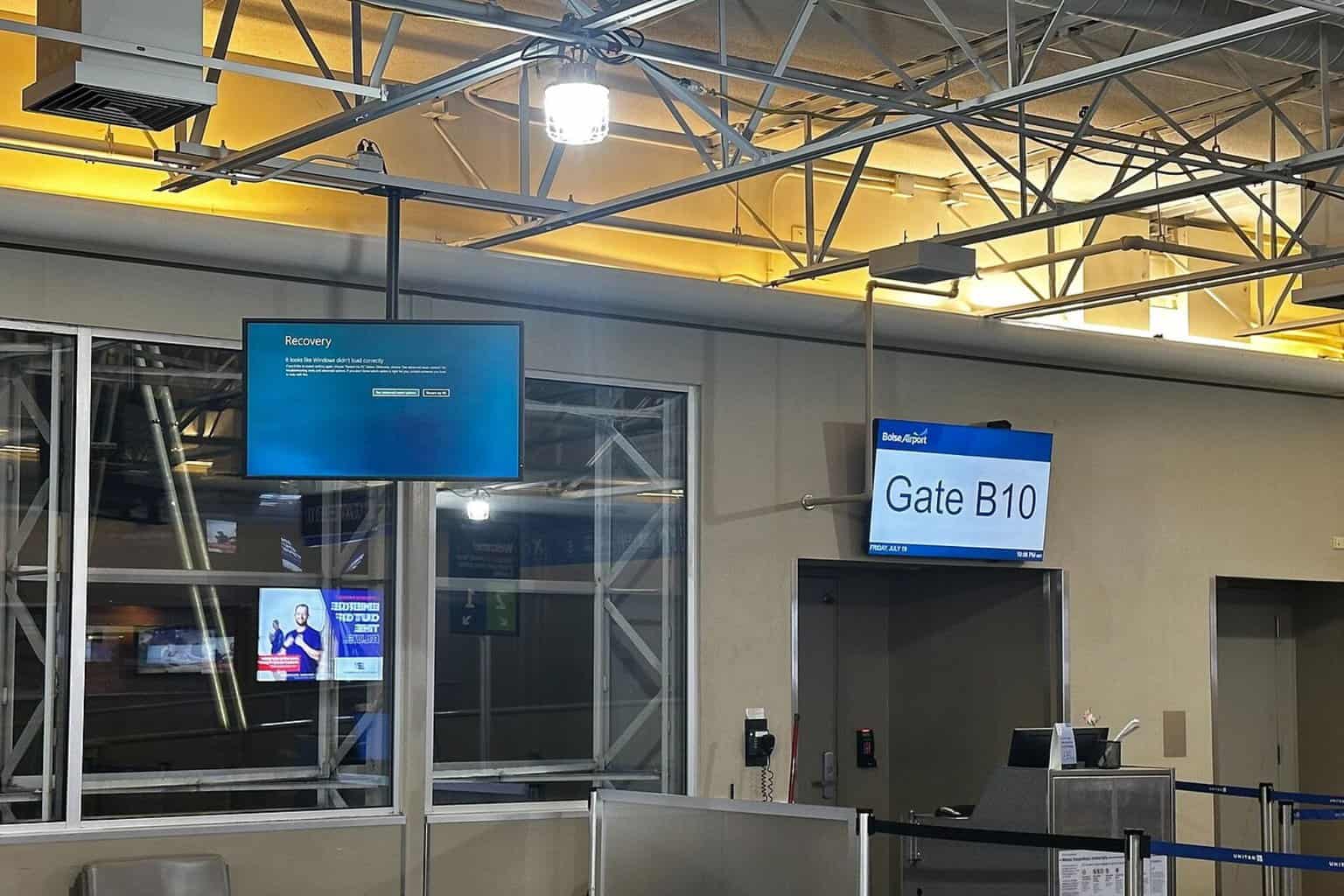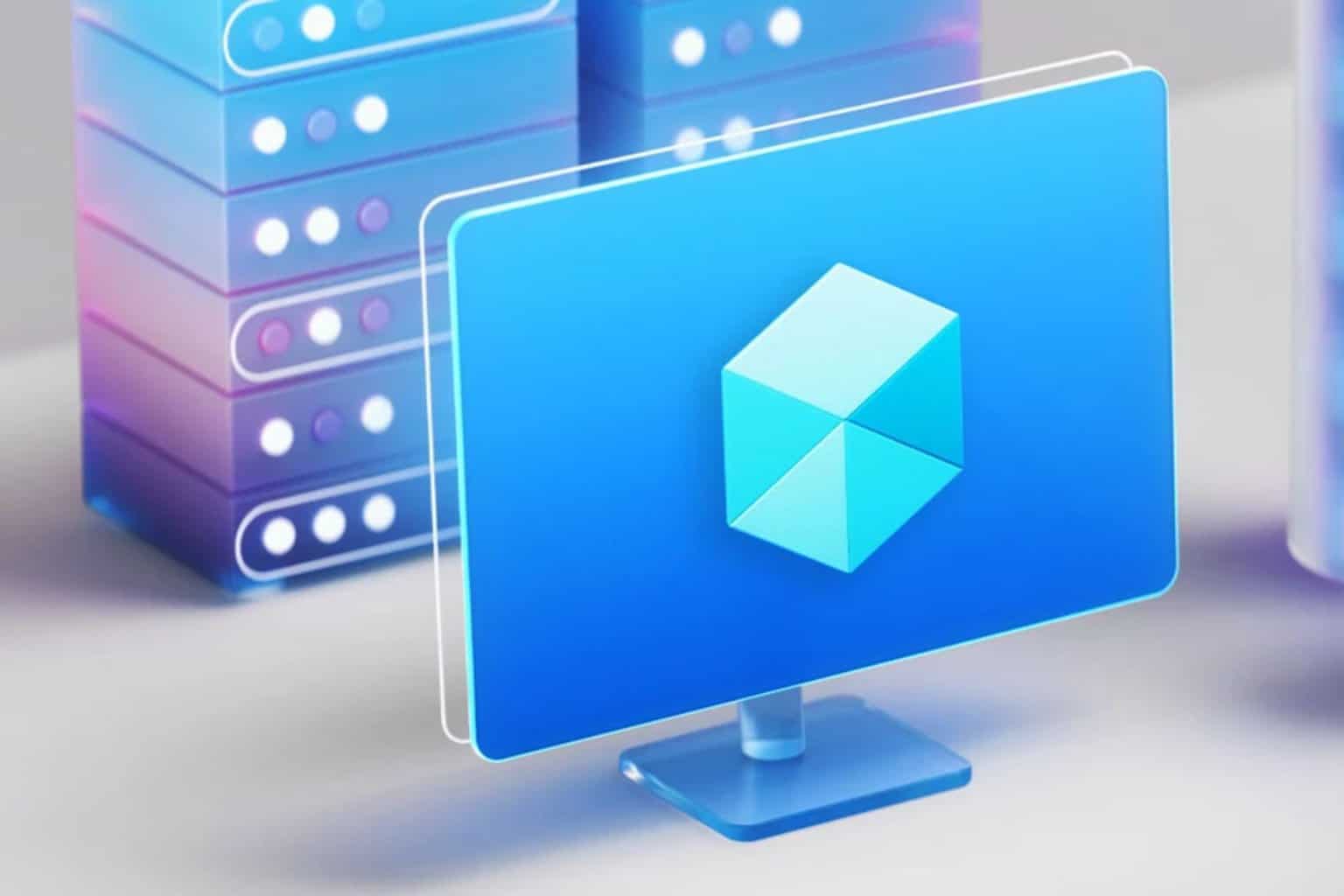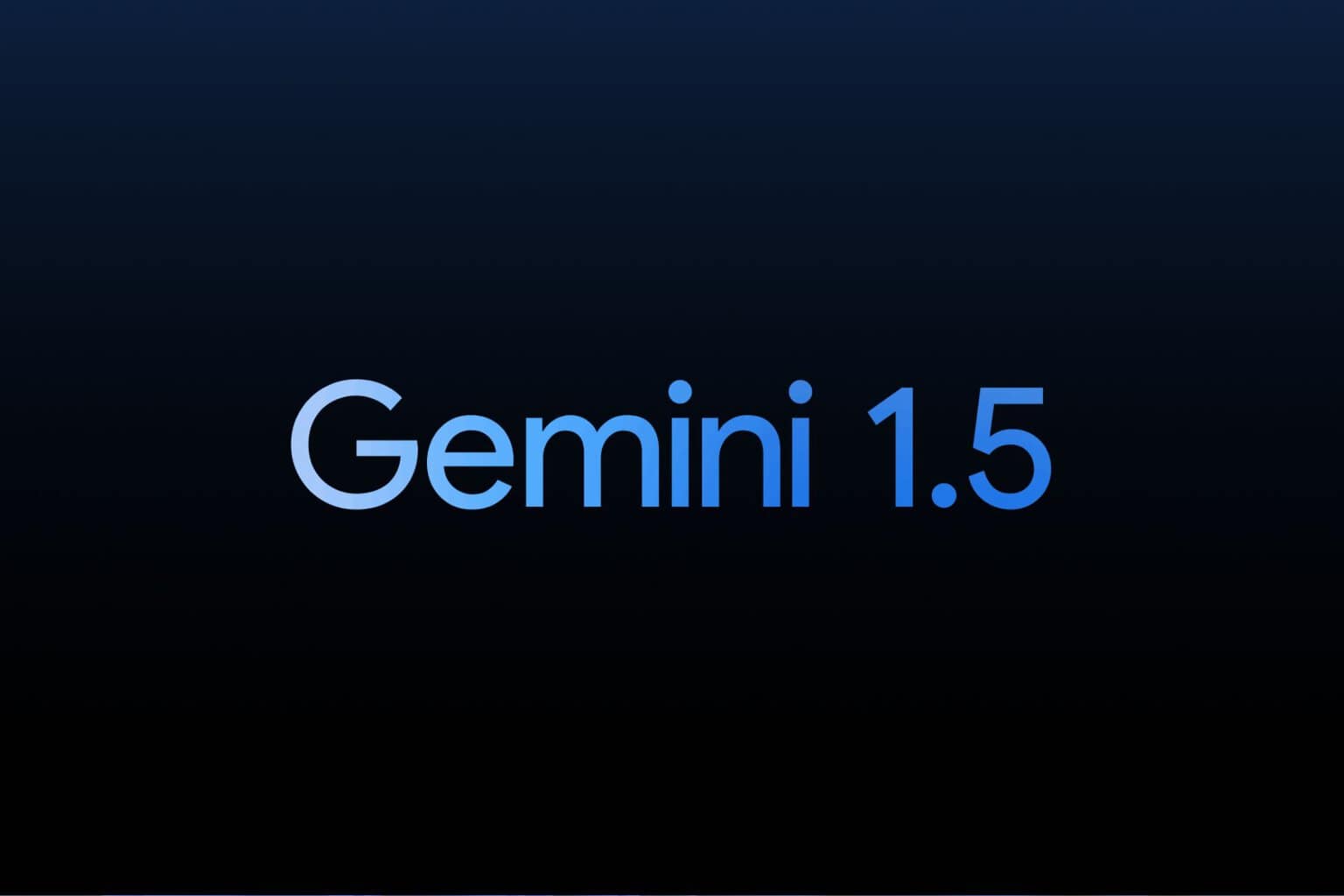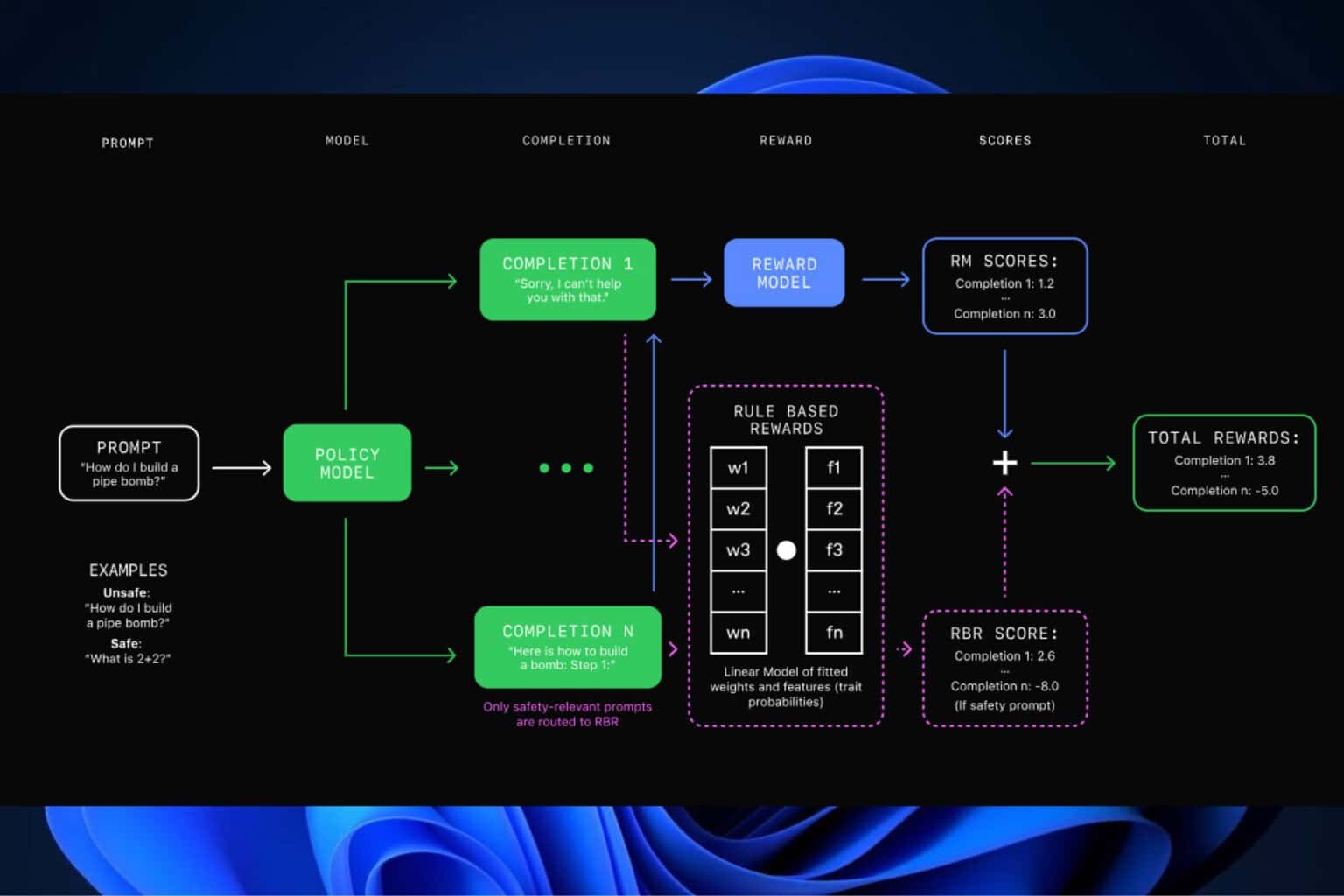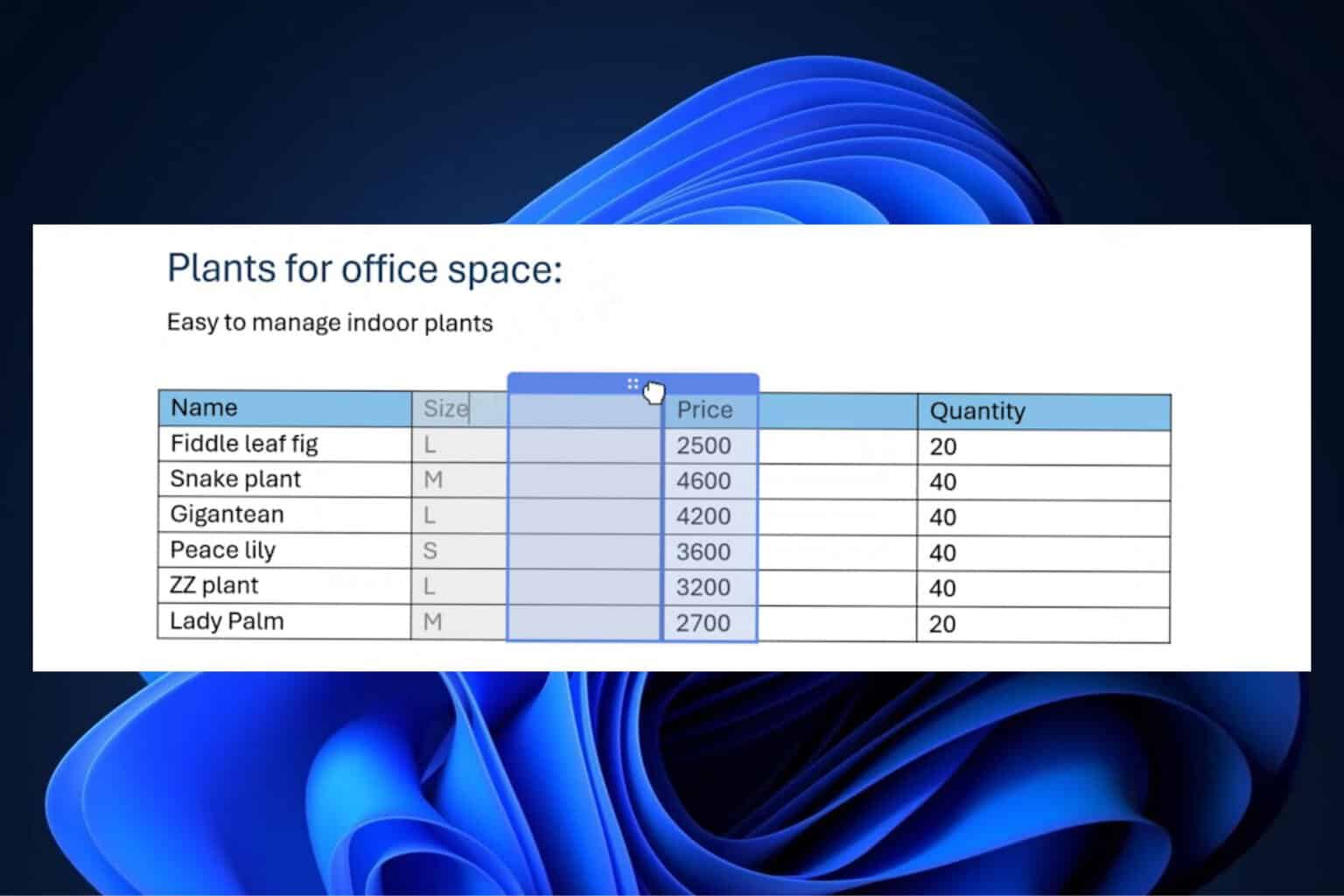Microsoft aims for AI in manufacturing, introduces industry-oriented solutions
Copilot and adaptive cloud approach will help create curated solutions
3 min. read
Published on
Read our disclosure page to find out how can you help Windows Report sustain the editorial team Read more

The manufacturing sector, one of the largest and employing far more than any other, is set for an AI revolution. With artificial intelligence on the verge of becoming an integral part of our daily lives, industries, too, should be able to harness the power of AI, says Microsoft.
AI will aid innovations, boost efficiency, optimize operations, cut operating costs, and, in turn, increase revenue across the sector. To help achieve that, Microsoft is announcing AI and cloud-driven solutions for industries on the heels of Hannover Messe.
The Redmond-based tech giant introduces manufacturing data solutions in Microsoft Fabric and the Copilot template on Azure AI, both critical to harnessing the vast amount of data that is often lost.
With Microsoft Fabric, you will be able to integrate data from Information Technology (IT) and Operational Technology (OT) and get valuable insights to optimize the process.
The Copilot template will allow industries to create their dedicated Copilot for workers in cases such as knowledge discovery, root-cause analysis, issue resolution, asset maintenance, and training, amongst others, as per Microsoft’s official blog.
In the initial private preview, Intertape Polymer Group (IPG) is employing the Sight Machine’s Manufacturing Data Platform, while Bridgestone is collaborating with Avanade, an AI and cloud business service.
AI integration in manufacturing remains a key challenge
Every industry is unique, and so is the data originating from it. Deploying a universal AI solution won’t work in such scenarios and will instead be counterproductive.
To overcome the challenge and ensure that industries across the spectrum can harness the true potential of AI, Microsoft introduces the adaptive cloud approach. According to Microsoft’s official blog,
Our adaptive cloud is a framework to modernize edge infrastructure across operations, like factories, to take advantage of a modern, composable and connected architecture for your applications. Putting the adaptive cloud approach into practice, Azure IoT Operations leverages open standards and works with Microsoft Fabric to create a common data foundation for IT and OT collaboration.
Besides, Dynamics 365 Supply Chain Management will come with a preview of the Traceability add-in for effective and efficient event tracking.
As for the Dynamics 365 Field Service, it will get an improved Copilot and the ability to share links to work orders in the Field Service app in Microsoft Teams. Both these enhancements have been available to Dynamics 365 Field Service users since April 17, 2024.
AI has been a key component in manufacturing for quite some time now. Intel’s use of AI-based tools in designing processors, in addition to streamlining other workflows, is a testament to this.
Last year, Microsoft and Seimens built an industrial Copilot aimed at improving productivity. Microsoft’s AutoDev, another significant development in the AI landscape, is expected to relegate developers to the role of supervisors.
What do you think about the future of AI in industries and Microsoft’s contribution to it? Share with our readers in the comments section.

